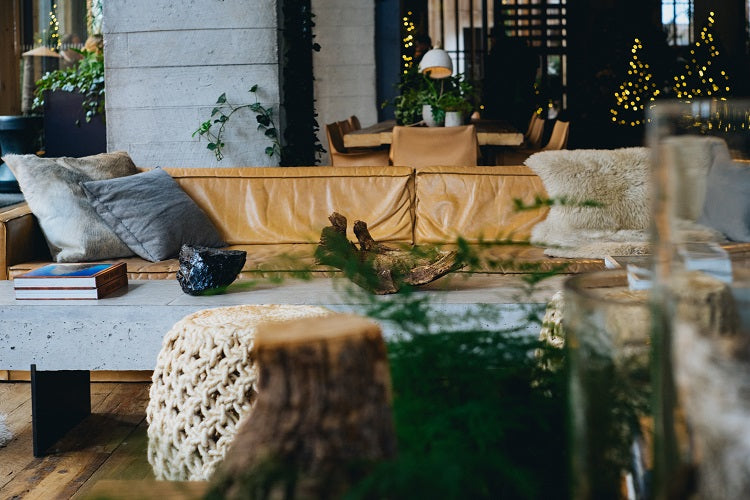Four Eco-Friendly Everyday Product Swaps for a More Sustainable Home
7 September 2018

Sustainability is a buzzword these days, and with good reason, as the Earth becomes increasingly stricken by the effects of climate change. Opting for products with less of an environmental impact is something everyone can do to reduce the harm caused to our planet, and in some cases, reduce the strain on our wallets. In today’s post, the organic skincare experts at Herbfarmacy are exploring a variety of ways you can swap harmful habits and household products for more sustainable alternatives, creating a truly eco-friendly home in the long term.
Food and drink
Food production accounts for a huge amount of the world’s CO2 emissions, from transporting produce between continents to processing it in factories, and that’s not to mention the huge amount of plastic food and drink packaging currently polluting our oceans. Swapping store-bought vegetables for ones you’ve grown yourself is a great start, as you’ll know exactly where they came from. If this isn’t feasible, you should consider buying your produce from farmers’ markets (using a tote bag to take them home), as removing the supermarket middleman can cut down on the impact of your shopping in a big way. Both of the above tips tend to be cheaper, too, so there’s no reason not to make these thrifty food swaps going forward.
Toiletries
The toiletry industry can be a minefield in terms of unsustainable production practices. However, there are a number of ways in which you can remain conscientious while still maintaining the same level of cleanliness and hygiene. For example, you could swap soaps with harmful additives such as parabens and sodium laureth sulfate for more natural options such as essential oils. You may find that your hand soap has greater moisturising properties as a result, and you won’t be harming the environment by using products that are produced in toxin-filled factories.
Skincare
The skincare sector is another that’s filled with synthetic products that harm the environment. The recent banning of plastic microbeads was a welcome step forward for the industry, but a best practice approach means making your skincare routine as natural as possible. The solutions are similar to toiletries, as products such as rosehip oil can be combined with marshmallow for a gentle facial product that is almost 100% organic. There’s a whole world of natural skincare ingredients out there, from the jojoba bush to aloe vera and even edible items such as green tea extract and avocado oil. Green tea extract is an especially useful product to add to your skincare routine, as it’s something of a jack of all trades. It has properties that help to repair DNA damage from UV sun rays, it contains anti-inflammatory catechins to reduce skin redness and it even boasts antibacterial functions, thanks to the high levels of polyphenols present. Avocado oil can calm itchy or chapped skin, and is also a capable moisturiser, while aloe vera is renowned for its restorative properties. There’s no real reason why you should continue using synthetic products once you’ve learned of nature’s skincare bounty, as there’s a natural solution to virtually every possible skin ailment.
Lighting and utilities
Moving on from personal products to the actual nitty-gritty of your home, LED lighting can make a significant difference to your home’s energy usage - all while providing a better, more customisable form of light for any room in your house. LEDs don’t get warm in the same way as an incandescent bulb, so much less energy is wasted when you turn the lights on, and there’s ample choice to ensure that you can easily make this product swap right across your home. In terms of other utilities in the home, it’s worth conducting an efficiency audit of your appliances to see which are costing you money (and utilising more energy as a result). Swapping an old washing machine for a low-water variant is a sensible place to start, while looking out for a fridge that has a high efficiency rating is essential if you’re looking to replace an older model.

Of course, there are possibilities galore when it comes to products you can swap out for a more sustainable, responsible lifestyle. Your quest to put the planet first at every stage of your daily routine can extend far beyond the areas mentioned in this article - simply add a dash of your own imagination and you’ll be well on your way.






